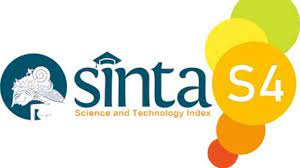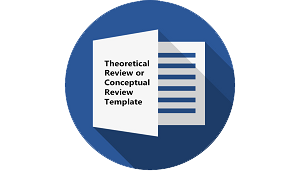ILLOCUTION IN SPEECH ACTS BY FOREIGN STUDENTS IN INDONESIAN AS A FOREIGN LANGUAGE CLASSES
DOI:
https://doi.org/10.30957/ijoltl.v2i3.390Keywords:
illocution, student, Indonesian Language.Abstract
This research explores illocution in speech acts by foreign students in Indonesian as a Foreign Language classes at Sebelas Maret University. Illocution is a speech that shows the state of language relating to the situation in general and more free and aims to express something from the speaker to the partner. This research aims to describe the forms of student illocution in Indonesian Language classes. This study used qualitative approach with naturalistic design. Data were collected using observation, interviews, and document analysis. The data of illocution acts included assertive, declaration, directives, commissive, and expressive in learning activities. The study revealed that students applied assertive, directives, commissive and expressive as their main speech acts during learning Indonesian language in the classroom especially in the oral uses for communications.Â
Downloads
References
Altikriti, Sahar Faroouq. 2011. Speech Act Analysis to Short Stories. The Journal of Language Teaching and Research ACADEMY PUBLISHER, 2 (6): 1374.
Anwar, Sanusi. 2014. Metodologi Penelitian Bisnis. Jakarta: Salemba Empat.
Ariff, Tun NurAfizah Zainal, dan Ibrahim Mugableh. 2013. Speech Act of Promising Among Jordanian. The International Journal of Humanities and Social Science, 3 (13): 248-266.
Austin, J.L. 1962. How to Do Things with Words. Cambridge: Harvard University Press.
Brown, H. D. 1994. Principles of Language Learning and Teaching. London: Prentice-Hall, Inc.
Creswell, John W. 2003. Research Design: qualitative, quantitative, and method approached. California: Sage Publication, Inc.
Handayani, Tri Kartika, Sri Megawati, dan Lia Malia. 2016. Nilai-nilai Karakter dalam Tindak Tutur Illocution dalam Buku WIR BESUCHEN EINE MOSCHEE. The Litera Jurnal Penelitan Bahasa, Sastra, dan Pengajarannya, 15.(2): hlm. 306.
Ilyas, Sanaa, Qamar Khusni. 2012. Facebook Status Updates: A Speech Act Analysis. TheJournal Academic Research International, 3 (2): 501.
Isnawati, Fifin Dwi, Syamsul Anam, dan Sabta Diana. 2015. Speech Acts an Analysis of The Main Character in Shreek Movie Script. Jember: Publika Budaya.
Leech, Geoffrey. 2011. Prinsip-Prinsip Pragmatik (terjemahan M.D.D. Oka). Jakarta: U I Press.
Nadar, F. X. 2013. Pragmatik dan Penelitian Pragmatik. Yogyakarta: GrahaIlmu.
Rahardi, R. Kunjana. 2000. Imperatif Dalam Bahasa Indonesia. Yogyakarta: Duta Wacana University Press.
Searle, J. 1969. Speech Act An Essay in the Philosophy of Language. Cambridge: Cambridge University Press.
Sugiyono. 2015. Metode Penelitian Pendidikan (Pendekatan Kuantitatif, Kualitatif, dan R&D). Bandung: Penerbit Alfabeta.
Suhirman, Lalu. 2016. Speech Acts in Psycholinguistics Class Setting in Postgraduate Program. IJOLTL, 1(1):19-38.
Sulistyo, Edy Tri. 2013. Pragmatik: Suatu Kajian Awal. Surakarta: Sebelas Maret University Press.
H.B. Sutopo. 2002. Metodologi Penelitian Kualitatif. Surakarta: Sebelas Maret University Press.
Umaroh, Liya, dan Neni Kurniawati. 2017. Dominasi Illocution dan Perlokusi dalam Transaksi Jual Beli. The Lensa: Kajian Kebahasaan, Kesusastraan, dan Budaya, 7 (1): 1-14.
Yule, George. 1996. Pragmatics. Oxford: Oxford University Press.
Wijana, I Dewa Putu. 1996. Dasar-dasar Pragmatik. Yogyakarta: PenerbitAndi.
Zayed, Niveen Mohammad. 2014. Jourdanian EFL Teachers and Students Practice of Speech Acts in the Classroom. The AUE: International Journal on Studies in English Language and Literature (IJSELL), 2: 1-10.
Published
How to Cite
Issue
Section
License
Authors who publish with this journal agree to the following terms:
- Authors retain copyright and grant the journal right of first publication with the work simultaneously licensed under a Creative Commons Attribution-ShareAlike 4.0 International License that allows others to share the work with an acknowledgement of the work's authorship and initial publication in this journal.
- Authors are able to enter into separate, additional contractual arrangements for the non-exclusive distribution of the journal's published version of the work (e.g., post it to an institutional repository or publish it in a book), with an acknowledgement of its initial publication in this journal.
- Authors are permitted and encouraged to post their work online (e.g., in institutional repositories or on their website) prior to and during the submission process, as it can lead to productive exchanges, as well as earlier and greater citation of published work (See The Effect of Open Access).












